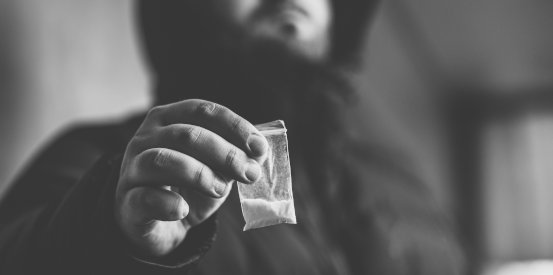
The Australian Capital Territory (ACT) has become the first jurisdiction in Australia to decriminalise the possession of small quantities of illicit drugs.
This article examines the new drug laws being introduced in the ACT, what the implications and key issues are, and how similar approaches have panned out in other countries.
New drugs laws in the ACT
On 20 October 2022, the ACT’s Parliament passed the Drugs of Dependence (Personal Use) Amendment Bill 2021. The bill was first introduced to parliament in early 2021 by government backbencher Michael Pettersson.
Under the new laws, someone who is caught possessing small quantities of illicit drugs will not be criminally prosecuted. Instead, the police will either give them a caution, a $100 fine, or refer them to a drug diversion program.
An important point to remember is that decriminalisation does not mean legalisation; decriminalisation removes criminal penalties for use/possession either by law or by practice.
The Amendment Bill includes a list of illicit drugs that are decriminalised and fall within the “personal possession limit”. This list of drugs includes cocaine, speed, and heroin. For each drug, there is an individual maximum threshold for the personal possession limit. If a person possesses more than this limit, they may then face criminal penalties. For example, cocaine has a personal possession limit of 2g, so if:
- a person possesses less than 2g, they will not face criminal penalties.
- a person possesses more than 2g, they may face criminal penalties.
This law will only come into effect in October 2023, as there will be a 12-month transition period. So, until October 2023, the old drug possession laws will still apply in the ACT and people can face criminal penalties for possession of any amount of illicit drugs, excluding cannabis.
Does this mean I can buy, sell, or produce drugs within these limits?
No. The ACT will still not be decriminalising the supply, purchase, sale, or production of illicit drugs. So while it may be legal in the ACT for residents to grow up to two cannabis plants, it is illegal to sell or buy cannabis in the ACT.
Why has the ACT taken this step?
The ACT has been taking progressive steps to address drug-related issues. These drug reforms have focused on harm reduction and re-education, as opposed to criminalisation and prosecution.
ACT Health Minister Rachel Stephen-Smith said these steps were taken after consulting with people who had lived experience of drug use, the alcohol and other drugs sector, and the advocacy group Families and Friends for Drug Law Reform (FFDLR).
Ms Stephen-Smith stated that this reform is based on evidence which supports decriminalisation of the possession of small amounts of a range of drugs. She also stated that decriminalisation reduces harm associated with engagement with the criminal justice system, reduces the stigma associated with drug use, and encourages people to come forward for the support and treatment that is going to help them recover from their dependence.
This law is consistent with the ACT’s previous legislative drug reform. It expands the ACT’s Simple Cannabis Offence Notice (SCON) scheme, which has seen small amounts of cannabis decriminalised since 1992. The ACT also passed a law in 2019 allowing the possession and growth of small amounts of cannabis for personal use.
Is decriminalisation of the possession of drugs effective?
It is impossible to say how effective decriminalisation of the possession of illicit drugs will be in Australia due to this being the first time it is being trialled in any state or territory.
However, similar approaches have been effective in other countries such as Portugal, the Czech Republic, the Netherlands, and Switzerland, which have decriminalised the possession for personal use of a number of drugs including cannabis, cocaine, heroin, methamphetamine, and types of psychedelics. These countries have demonstrated a reduction in drug-related deaths, drug-related offences, and the use of drugs through injections.
It is important to keep in mind that these countries have also heavily invested in networks of services which aim to reduce use of harmful substances and related deaths or injuries. These services include outpatient consulting and treatment, harm reduction programs, counselling, and providing basic essential resources such as housing and food.
A recent negative case study has been the U.S. city of Portland, which saw an increase in the use of serious drugs after possession of small amounts of illicit drugs was decriminalised. Research into this issue has identified a lack of investment in drug re-education programs and harm reduction programs as a major factor contributing to the poor outcomes.
This will be a useful lesson for the ACT as it transitions to the new laws, as decriminalisation without proper investment in programs and support systems could hamper effective drug reform.




